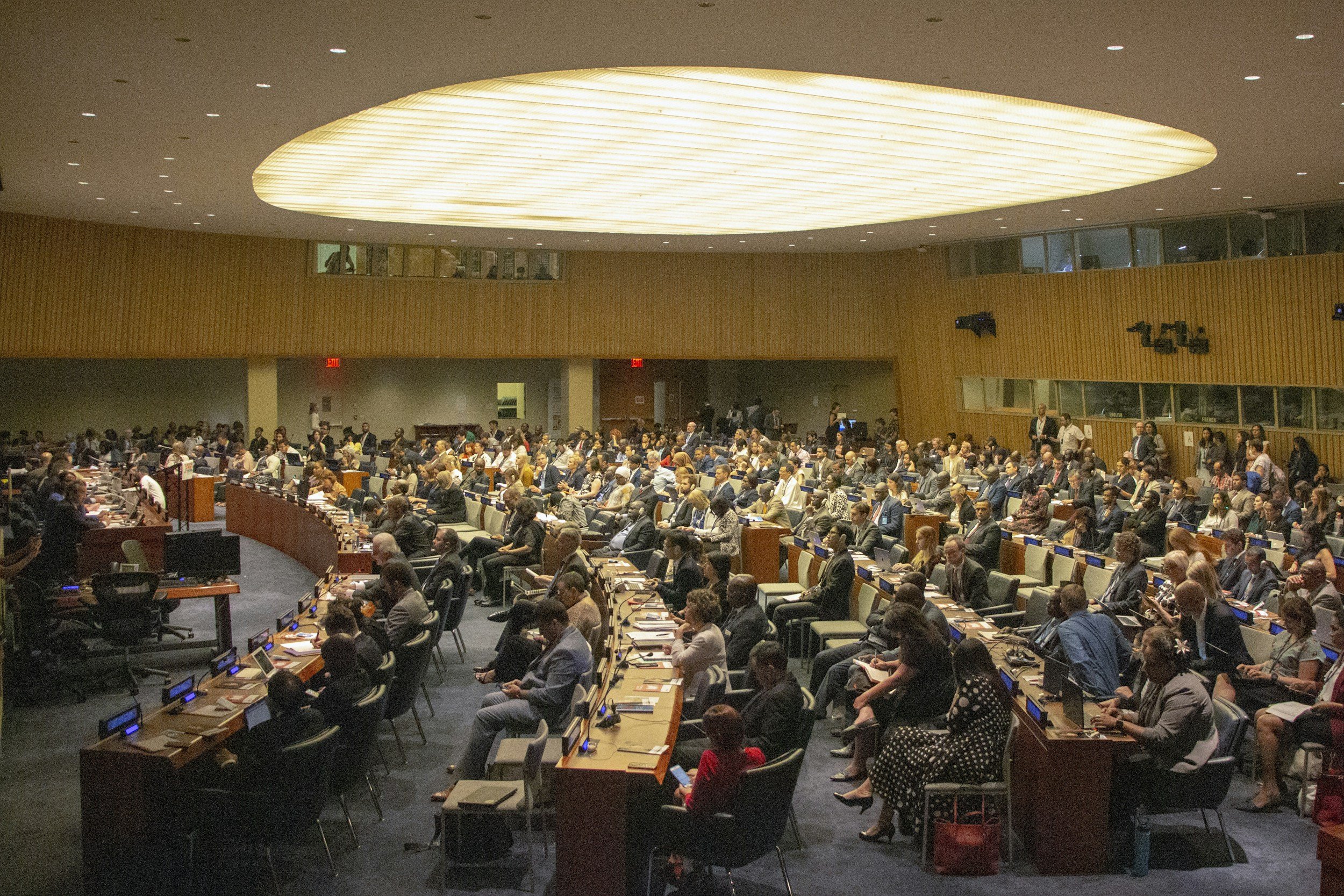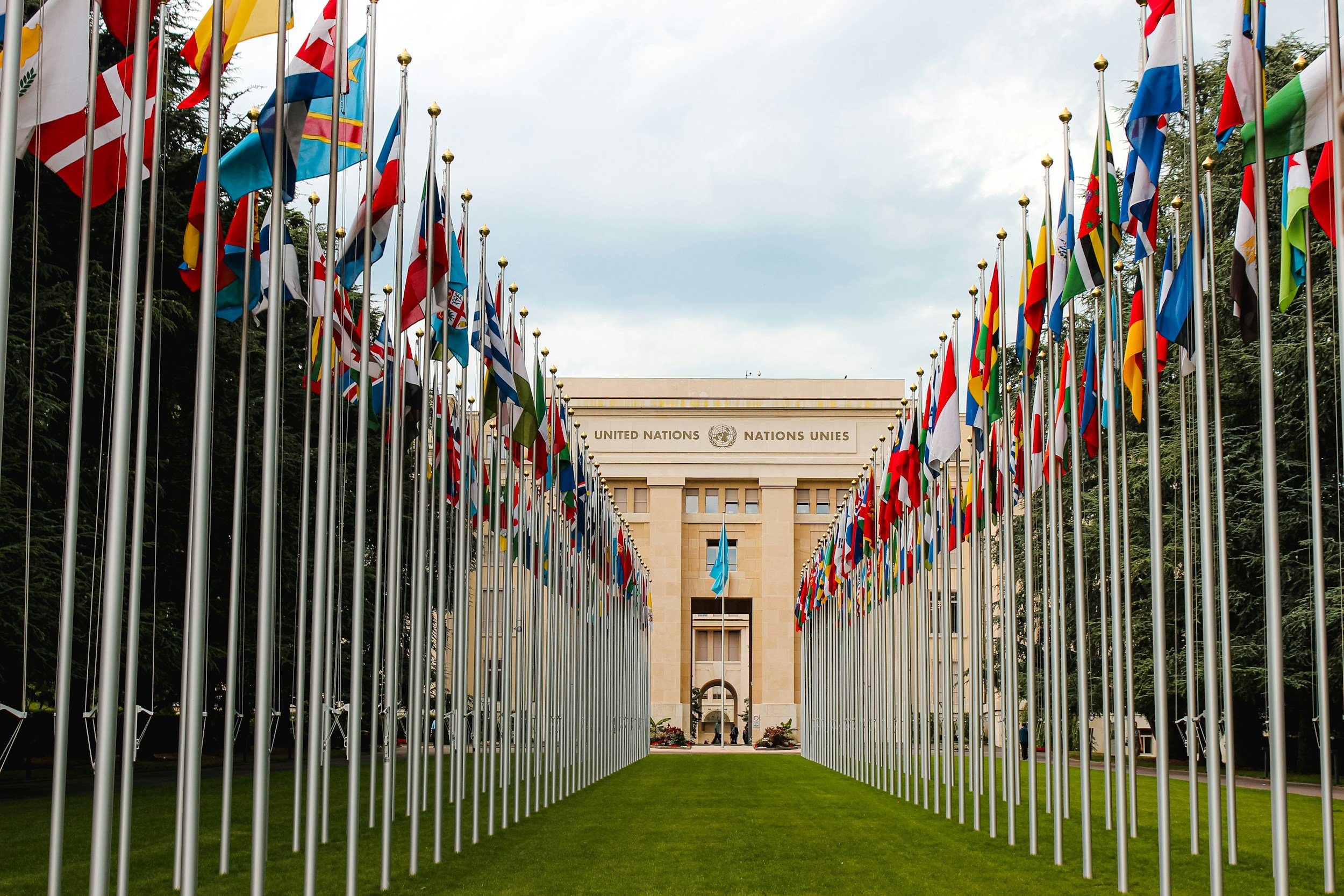
Search Through our Issue 2024

Should the International Criminal Court expand its jurisdiction to prosecute ecocide?
Since 2017, international groups such as Stop Ecocide International have urged ICC member state parties to propose an amendment that would add the fifth crime of ecocide, arguing that its inclusion as an international crime under the ICC’s jurisdiction is crucial given the widespread ecological destruction that human beings have committed to the planet. According to such supporters of ecocide law, which includes figures like United Nations Secretary General Antonio Guterres, environmental activist Greta Thunberg, former ICC Judge Tuiloma Neroni Slade, and former ICC President Chile Eboe-Osuji, making ecocide a crime would finally create an “arrestable offence” through which individuals responsible for severe environmental degradation would be “liable to criminal prosecution”.

‘Lex Talionis’ - England sent the Death Penalty to the gallows; will the US do the same?
In the United States Supreme Court, Justice Scalia (a well-known proponent of the death penalty) doubted that the infallible United States’ legal system has ‘executed an innocent person.’ When decisions of irreversible consequence are concerned, it leaves one to consider whether humans, who have an innate proclivity to err, are capable of making such verdicts.

Law and Capitalism
In the US in 2022, over 73 billion dollars were given as a subsidy for charitable giving, yet less than 70% of donations went directly to charities. The law allows the highly wealthy to use these charitable write-offs to gain more money without ensuring donations reach charitable organisations. Many argue that we need these private foundations and tax write-offs to encourage the wealthiest people to donate, and I agree.

South Africa v. Israel: What’s Next?
On 26 January 2024, The Hague ruled in slight favour of South Africa regarding its application concerning Israel’s potential acts of genocide in Gaza Strip (Gaza). The court urged The State of Israel to ‘take measures within its power’ under the UN Genocide Convention, but rejected the South Africa’s request for UN provisional measures.

York City Council’s new development plan: A Saviour for Student housing?
Student housing in York is seriously lacking in availability; the city has the highest demand for purpose-built student accommodation (PBSA) in the country. Consequently, rent for students has increased significantly, often far exceeding the lowest student loan. The primary cause of the student housing shortage is the growth of the student population. The University of York’s student population has grown from 15,850 in 2012, to 20,480 in 2023; this represents nearly a 25% increase in just over a decade.

Are prisoners the victims of exploitation in the UK?
Prisoners are demonstrated to be a vulnerable group and a product of forced labour and modern slavery in the UK, as a result of the legislation and inefficient protection of prisoners surrounding the cheap, manual labour that prisoners conduct. While a prisoner is ‘required to do useful work for not more than 10 hours a day’ for the ‘Prison Service’s own internal market’ and the ‘private companies’ that prisoners work for, they can be viewed as being the victims of enslavement by the state and those companies.

The legacy of Clare’s law: ten years on
The past decade has seen revolutionary change regarding how domestic violence is conceptualised within law and subsequent UK legislative frameworks. There has arguably been a shift regarding our understanding of the law in this sphere, and the responsibilities it should offer to those who have previously been hidden from their right to life and safety within the criminal justice system. One such victim, whose tragic fate emphasised the lack of care and attention public bodies-like the police-afford to victims of domestic violence was Clare Wood.

1984, REIMAGINED: MI5’S UNLAWFUL INVESTIGATORY POWERS
Originally formed as the Secret Service Bureau, MI5 came into being in 1909 as a single organisation consisting of only two members. This was in response to the threat of German spies infiltrating the UK. Now, more than a century later, MI5 has over 5000 recruits in their employment, reflecting the growing appreciation by the UK government of MI5 as a system to protect national security against threats such as espionage, terrorism, and sabotage.

The Mortgage Prisoner Dilemma
The House of Commons Library defines mortgage prisoners as people who own property and have a mortgage on that property, butproperty but cannot move to a new mortgage provider or find a better deal, even if they are up to date with their payments. Some are trapped in extortionate variable interest rates of 8.29% to inactive vendors. An inactive vendor is a mortgage provider authorised to provide mortgages but does not offer new mortgage deals and cannot change mortgage terms as they are no longer lending. They are, therefore, simply a debt collector.

Standard Essential Patents: The Future of Intellectual Property Regulation on Stifling or Benefiting Innovation
The shared end goal of both EU and UK policies is to improve “financial and legal predictability” and reduce the currently present high risk of litigation as discussed above. While the principles underpinning the licensing of SEPs have been described as “relatively easy to identify and endorse”, their application “remains much more complex and controversial”.

‘Human Rights are inalienable and should be upheld regardless of their value for business success': human rights as an ESG enterprise or a global standard?
Human rights principles belong to the ‘S’, (social), active in subjects of ‘modern slavery, corporate security, diversity, employee and consumer relations, and supply chain sustainability’. These values are not just a ‘moral obligation’, or even securely self-evident: they are critical to every business operation and should be recognised. The need to protect and integrate these principles has become increasingly clear as companies work to thrive post-pandemic, and now within the climate crisis.

Deciphering the Legal Landscape: Marr v Collie and the Quest for Clarity in Constructive Trusts
Until Marr v Collie, the common intention constructive trust (“CITC”) had only been considered by the highest appellate level twice before – by the Supreme Court in Jones v Kernott and the House of Lords in Stack v Dowden. In Stack, Lady Hale disagreed with the presumption that ‘equity follows the law’, rather permitting that the party seeking to rebut the presumption can do so in proving that the parties held a common intention that their beneficial interests were different from their legal interests.

The veil of identity in criminal proceedings of children: are protections offered outdated?
Offenders of such violent crimes are typically adults, and therefore are presumed criminally responsible for their conduct; yet this begs the question, what happens when children kill? Though such instances are rare, there is a legislative procedure for youth offenders. The legislation that governs the prosecution of children is the Children and Young Persons Act 1933, in which section 50 states: “It shall be conclusively presumed that no child under the age of [ten] years can be guilty of an offence”.

Secrecy vs Democracy: How the National Security Act threatens press freedoms
Consider this, a British journalist working abroad under the financial backing of a (non-threatening) foreign government’s state broadcaster, reporting on leaked information received from a confidential source. The protected information relates to UK public funds and individuals’ efforts to hide them in offshore jurisdictions, implicating the UK Government in corruption. Is this legitimate journalism in a functioning democracy or a matter to remain secret under the guise of government?

A funny thing called Justice
The ‘machinery of justice’ is a complex system, symbolised by the blind Lady Justice. Conceptually, her blindfold seeks to eliminate prejudice within the Law, but in a society that has evolved to see, appreciate and understand differences between individuals, should the Lady

The ‘Unlawful’ Illegal Migration Act
On the 4th of January 2023, Prime Minister Rishi Sunak unveiled a list of top goals for 2023 comprising of five commitments—one of which was to "Stop the Boats.”1 This promise pertained to inflatable dinghies carrying migrants fleeing economic desolation and war that……

Excluding the ‘Middle Class’ from the Civil Legal Aid System
Britain’s current civil legal aid system has not progressed or ensured that the law remains accessible to individuals since the introduction of the Legal Aid, Sentencing and Punishment of Offenders Act 2012 (LASPO).1 The Act has caused individuals just above the……

How does the introduction of the Illegal Migration Act Adversely Impact the Human Rights of Migrants in the UK?
Human rights as a principle give practical effect to the notion that all human beings are entitled to a certain threshold of humanity— as derived from a complex relationship between legal and moral rights.1 A stronger set of statutory laws were implemented after…….

Human Rights and Nationalism – A Turbulent Relationship
alus populae supremo lex esto. The health of the people is the utmost law. This is an adage coined by Marcus Tullius Cicero in Book III of De Legibus, and its connotations get to the heart of what I am going to discuss in this piece. In an age of debate over……

Women: The Long Ignored Victims of the Brexit
As Brexit has evolved from an idea to a movement, its status to the people of the United Kingdom and other European Union Member States is no longer one of a looming threat, but an immediate danger. Though the impacts of this movement on citizens of…..
